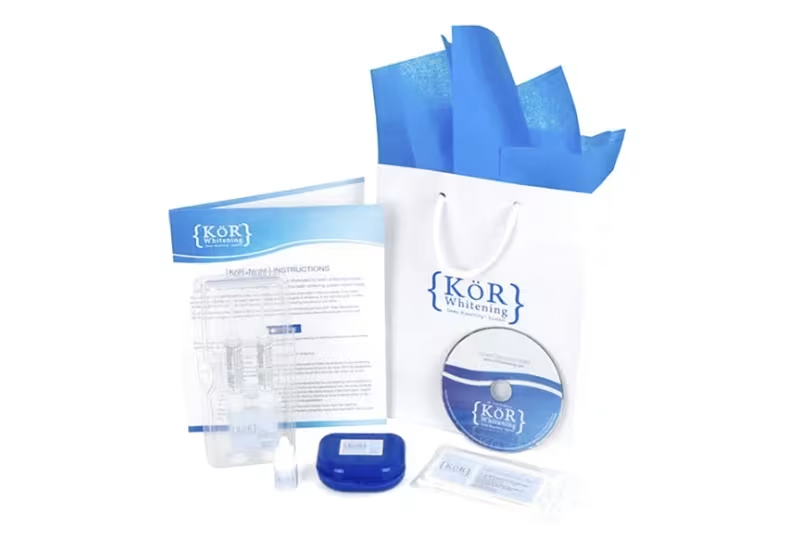Home / Dental Services / Teeth Cleaning
Teeth Cleaning in Miami, FL
Did you know that getting your teeth cleaned professionally is one of the most important aspects of oral hygiene? It’s true! If you’ve never had your teeth cleaned before, then you should definitely start soon. In fact, you should schedule a teeth cleaning appointment with me at Gallardo Periodontics and Implant Dentistry in Miami, FL, as soon as possible.
Choose Gallardo Periodontics
- Prevent Cavities and Tooth Decay: We clean away the plaque and tartar that your toothbrush can't reach.
- Protect Against Gum Disease: Our deep cleaning removes harmful bacteria below the gum line to help you avoid gum disease.
- Stop Gum Problems from Getting Worse: If you have gum issues, we manage them so they don't progress further.
- Avoid Root Canals: By finding and treating infections early, we help you skip more complicated procedures.
- Get a Healthier, Whiter Smile: We remove stains from coffee, tea, and more to brighten your smile.
The Importance of Professional Oral Hygiene
Adults over the age of 35 lose more teeth to periodontal disease than to cavities. Even if you take good care of your teeth at home, three out of four adults will still experience gum disease at some point in their lives. Unfortunately, once periodontal disease starts, it can quickly get worse and lead to many problems. Dentists know that gum disease is linked to long-term health issues. Ongoing illnesses like diabetes, heart disease, and osteoporosis can also affect the health of your mouth.
The only way to avoid periodontal disease or its progression is through daily brushing and flossing, as well as routine dental examinations and teeth cleaning. Dental hygiene is most effective with the assistance of an experienced dental professional. Dr. Gallardo has over 30 years of dental experience. Working together, periodontal disease can be reversed, and in many cases, completely prevented, through proper oral hygiene.

Miami Residents Trust Gallardo Periodontics for Teeth Cleaning
Schedule your consultation today!
Teeth Cleanings Techniques
the best care for our patients
Several cleaning techniques are available at our Miami dental office. Each is different and will be utilized to meet the unique needs of individual patients.
Prophylaxis Cleaning
Prophylaxis cleaning is a preventive measure that helps maintain good oral health. At Gallardo Periodontics and Implant Dentistry, Dr. Gallardo and his team perform thorough prophylaxis cleaning, which includes removing plaque and tartar buildup from the teeth and gum line, ensuring your mouth stays healthy. This cleaning also includes polishing the teeth to leave them feeling smooth and fresh, enhancing both the health and aesthetic appeal of your smile.
Periodontal Prophylaxis
Periodontal prophylaxis focuses on preventing gum disease by providing a deep cleaning below the gum line. Dr. Gallardo’s expertise in periodontics ensures that this procedure is carried out effectively, helping to prevent the progression of periodontal disease and maintain your oral health. This proactive dental treatment aids in detecting early signs of gum disease, allowing for immediate intervention and management.
Gross Debridement
Gross debridement is a technique used to remove large amounts of plaque and tartar buildup, particularly in cases where regular dental cleanings have been missed. Dr. Gallardo performs a gross debridement before a full evaluation, ensuring that your teeth and gums are free from harmful bacteria. This procedure is especially beneficial for patients who have not had professional dental care in a long time, setting the stage for healthier oral hygiene practices.
Scale and Polish
A scale and polish procedure involves the removal of plaque and tartar from the teeth, followed by polishing to remove stains and smooth the tooth’s surface. Dr. Gallardo’s meticulous approach to teeth cleaning guarantees a thorough scale and polish, leaving your teeth clean and bright. The polish not only improves the aesthetics of your teeth but also makes it harder for plaque to adhere to the tooth surfaces in the future.
Root Planing
Root planing is a technique used to smooth the tooth roots and remove bacterial toxins that contribute to gum disease. Dr. Gallardo’s expertise in periodontics ensures that root planing is performed effectively, helping to prevent further progression of gum disease and maintain your oral health. This deep cleaning process is critical for restoring and maintaining the health of gum tissues by facilitating reattachment to the tooth surfaces.

The Dental Cleaning Process at Gallardo Periodontics
At Gallardo Periodontics and Implant Dentistry, the teeth cleaning process begins with a comprehensive oral examination to assess your overall oral health.
Dr. Gallardo and his team will then use advanced dental tools and techniques to remove plaque and tartar buildup from your teeth and gum line. Depending on your specific oral health needs, the cleaning process may include a combination of prophylaxis, periodontal prophylaxis, gross debridement, scale and polish, and root planing.
Throughout the process, Dr. Gallardo ensures that you remain comfortable and informed about each step, ultimately helping you achieve a healthier, cleaner smile.
How Often Should I Clean My Teeth?
What Our Patients Say
Committed to your results
Cleaning Teeth at Home
The KOR At-Home Whitening System
As the world’s number one home teeth whitening system, KOR is a simple and cost-effective way to maintain a beautiful smile. KOR kits are now available from Gallardo Periodontics & Implant Dentistry. Although an upcoming wedding, graduation, or class reunion may prompt you to get your teeth whitened, almost anyone can benefit from using a good whitening system.
KOR Whitening will:
- Whiten the teeth
- Remove coffee and tea stains
- Eliminate discoloration from tetracycline and other medications
- Provide a brighter smile
- Take years off the appearance
- Restore self-confidence

Cost of Teeth Cleaning in Miami, FL
The cost of teeth cleaning in Miami, FL, can vary depending on the complexity of the cleaning procedure, the presence of any existing oral health issues, and your dental insurance coverage.
At Gallardo Periodontics and Implant Dentistry, Dr. Gallardo and his team strive to provide high-quality dental care to their patients. He will collaborate with you to create a customized treatment plan that fits your needs while addressing your oral health concerns.
It’s essential to prioritize regular teeth cleanings, as they can help prevent more severe and costly dental issues down the line.

Why Choose Dr. Gallardo for Your Teeth Cleanings
Here are several distinguishing reasons to choose Dr. John Paul Gallardo for your teeth cleaning in Miami, FL:
- Known for his meticulous attention to detail and unique techniques, Dr. Gallardo achieves long-lasting results for his patients.
- His state-of-the-art facility in Miami provides the opportunity for safe and effective gum disease and dental implant treatment with minimal downtime.
- Interviewed by media outlets as an expert contributor to oral health news updates
- A highly experienced periodontist and dental implant expert with 30 years of experience in the field.
By choosing Dr. Gallardo for teeth cleaning, you can trust in his expertise and commitment to maintaining your oral health.
Frequently Asked Questions About Teeth Cleaning
What is professional oral hygiene care?
Oral hygiene refers to various techniques used to clean the teeth and gums. Dr. Gallardo can assist you with in-depth hygiene methods that can prevent or halt the progression of periodontal disease and will help you to develop an oral care and dental plan.
Will teeth cleaning whiten teeth?
While teeth cleaning can remove surface stains and some discoloration, it is not primarily designed to whiten teeth. For those interested in enhancing their smile with whiter teeth, Dr. Gallardo offers the KOR At-Home Whitening System. This professional-grade whitening solution can be used from the comfort of your own home.
What is involved during a periodontal prophylactic cleaning?
At Gallardo Periodontics & Implant Dentistry, periodontal prophylactic cleaning removes calculus from above the gumline (supragingival cleaning), removes plaque and tartar from below the gumline (subgingival cleaning), and smooths the roots of the teeth (root planing), thus eliminating all bacteria from your mouth.
What is the recommended frequency for periodontal prophylactic cleaning?
Periodontal prophylactic cleaning should be done every three months for those with existing periodontal disease.
Who would benefit from having their teeth cleaned by a periodontist?
Anyone who wants to prevent the development of gum disease or is currently suffering from oral issues, such as bleeding gums or periodontal disease, should routinely have their teeth cleaned by a periodontist.
Is root planning, or a deep cleaning, painful?
Some patients may note mild to moderate discomfort during the deep cleaning process. Dr. Gallardo will utilize IV sedation or a topical anesthetic to ensure the procedure is pain-free. His number one priority is to remove the stress and discomfort from any dental procedure.
How much does teeth cleaning cost in Miami?
The cost of teeth cleaning can vary depending on factors such as insurance coverage, the complexity of the procedure, and any additional tests or treatments required. Dr. Gallardo and his team strive to provide affordable and high-quality dental care, working with you to create a customized treatment plan that fits your budget and addresses your oral health concerns.
What teeth cleaning office is near me?
If you live near Miami, FL, Gallardo Periodontics and Implant Dentistry offers teeth cleaning among its services, and is conveniently located at 2020 SW 27th Ave Miami, FL 33145